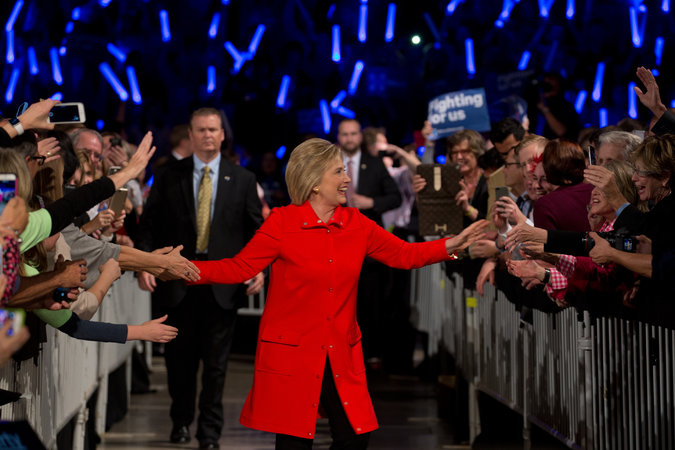
Washington, Oct. 26 – The last time all of the democratic candidates addressed a dinner in Iowa, none of them talked about rights for people with disabilities. Three months later, and the tide has turned.
“While we fight for a growth and fairness economy that works for everyone, we can’t forget the quieter problems that don’t often make the headlines,” Democratic presidential hopeful Hillary Clinton said at the annual Jefferson-Jackson Dinner at Hy-Vee Hall in Des Moines Saturday night.
“I’m also fighting for the grandmother who told me she is raising her grandchild because of her daughter’s struggle with drug addiction. For the mom who asked me what she’s going to do when her child with autism gets older. For every family trying to cope with untreated mental illness. I’m fighting for the man I met whose mother has Alzheimer’s. He cannot afford a full-time caretaker. So you know what he does? He’s a teacher. He takes his mother to work with him.”
Yet Clinton – along with her competitors Bernie Sanders and Martin O’Malley – did not talk about a priority for people with disabilities – employment. Fully one-in-five Americans have a disability and polls show that most of them want to work. Yet 70 percent of working-age Americans with disabilities are outside of the workforce. This leads to poverty and costs taxpayers billions of dollars in disability benefits.
America has 56 million people with disabilities, more than 20 million of whom are working age. More than 50 percent of Americans report having a family member or close friend with a disability. Fifty-two percent of Democrats report that they or a loved one have a disability, and for Republicans, a smaller number of 44 percent report they have a disability. Surprisingly, Independents have the largest number of voters who say they have a disability, with 58 percent saying yes. This shows that swing voters with disabilities and their families are up for grabs.
“Issues of employment among people with disabilities can affect outcomes in competitive races,” Democratic pollster Stan Greenberg, PhD, said in a statement following a recent bipartisan poll of 2014 voters. “This community is far bigger than many people realize, including people in my profession.”
Introducing policies that create opportunities for employing people with disabilities is not a conservative issue or liberal issue; it is a human issue, and it affects a large portion of the electorate in the United States. The top issue in the disability community is jobs. Government policies that help people with disabilities get and keep jobs are a win-win because they allow people with disabilities the dignity and financial benefits of work and also grow our economy and save taxpayer money.
If nothing else, the bipartisan poll “shows that Americans with disabilities – and those who care deeply about them – are a demographic we need to pay attention to in the future,” Republican pollster Whit Ayres said in a statement.

Be First to Comment